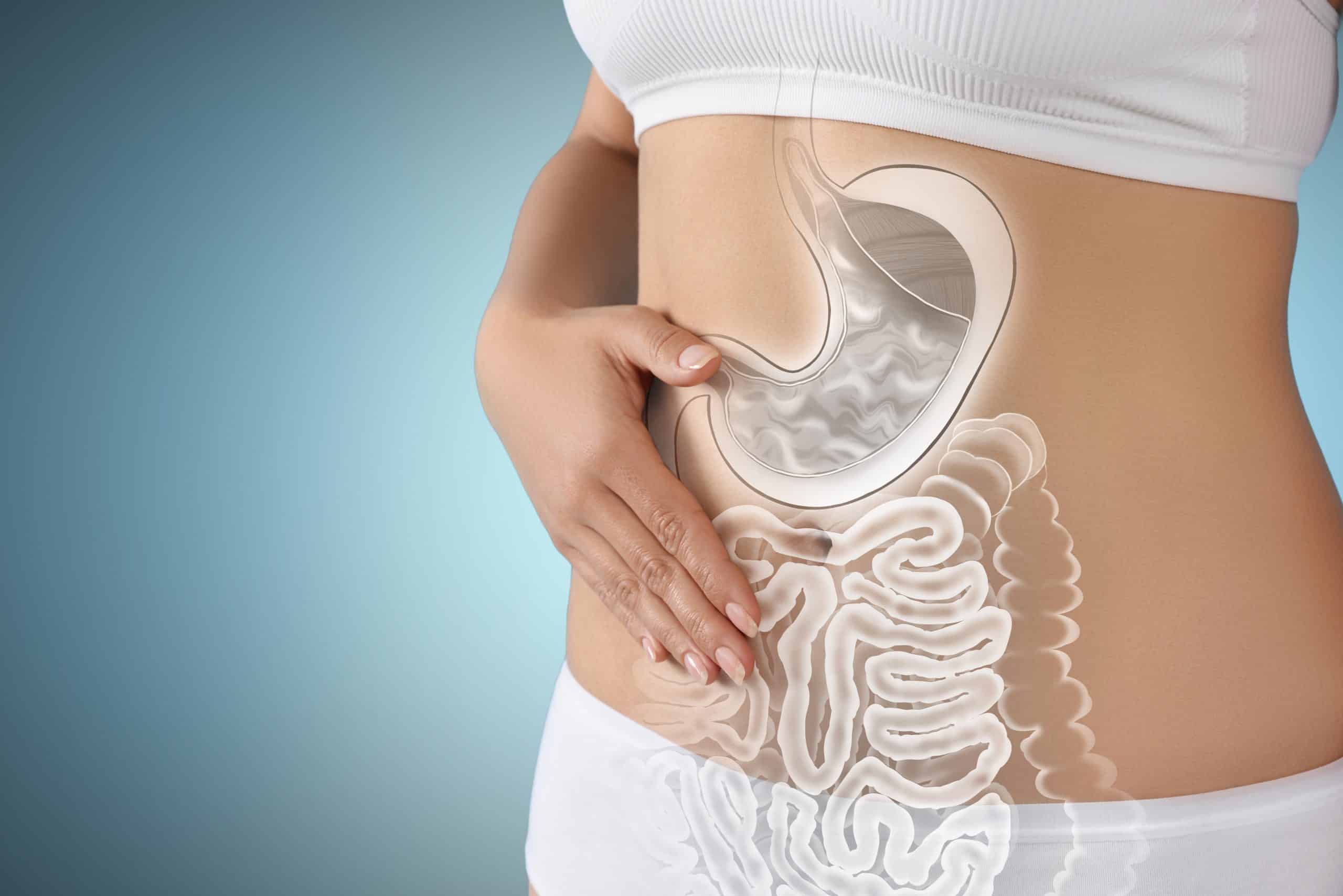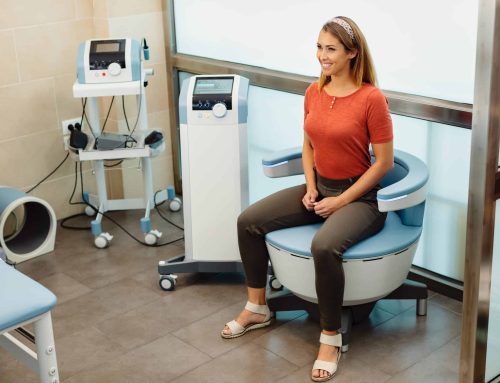The Power of Your Microbiome
You might think of your body as organs, tissues, and cells—just human. However, there are other life forms inside your body, including more than 5,000 types of bacteria, called microbes, that help your body function on a daily basis. This collection of microorganisms that live inside and on your body, particularly your gut, is your microbiome. These microbes affect digestion, immune function, and even your mood. In fact, some studies have shown that the microbes in your gut have a direct connection to your brain. This gut-brain axis plays a pivotal role in how you feel emotionally—so much so that the gut is sometimes referred to as the “second brain.” There are roughly 100 trillion microbes in the human body, and your microbiome—where they reside—is where neurotransmitters manufacture your feel-good hormones such as serotonin and dopamine.
One of the key neurotransmitters that impacts your mood is serotonin, and it’s largely produced in the gut, not the brain. That’s right—much of your happiness comes from the bacteria in your intestines. In a healthy gut, good bacteria work together to create a thriving, balanced environment. When your gut is filled with probiotics, or “good bugs,” as Dr. Jill Wade likes to call them, you feel happier, calmer. However, when there’s an imbalance, this doesn’t just affect your digestive health but also your mental health.
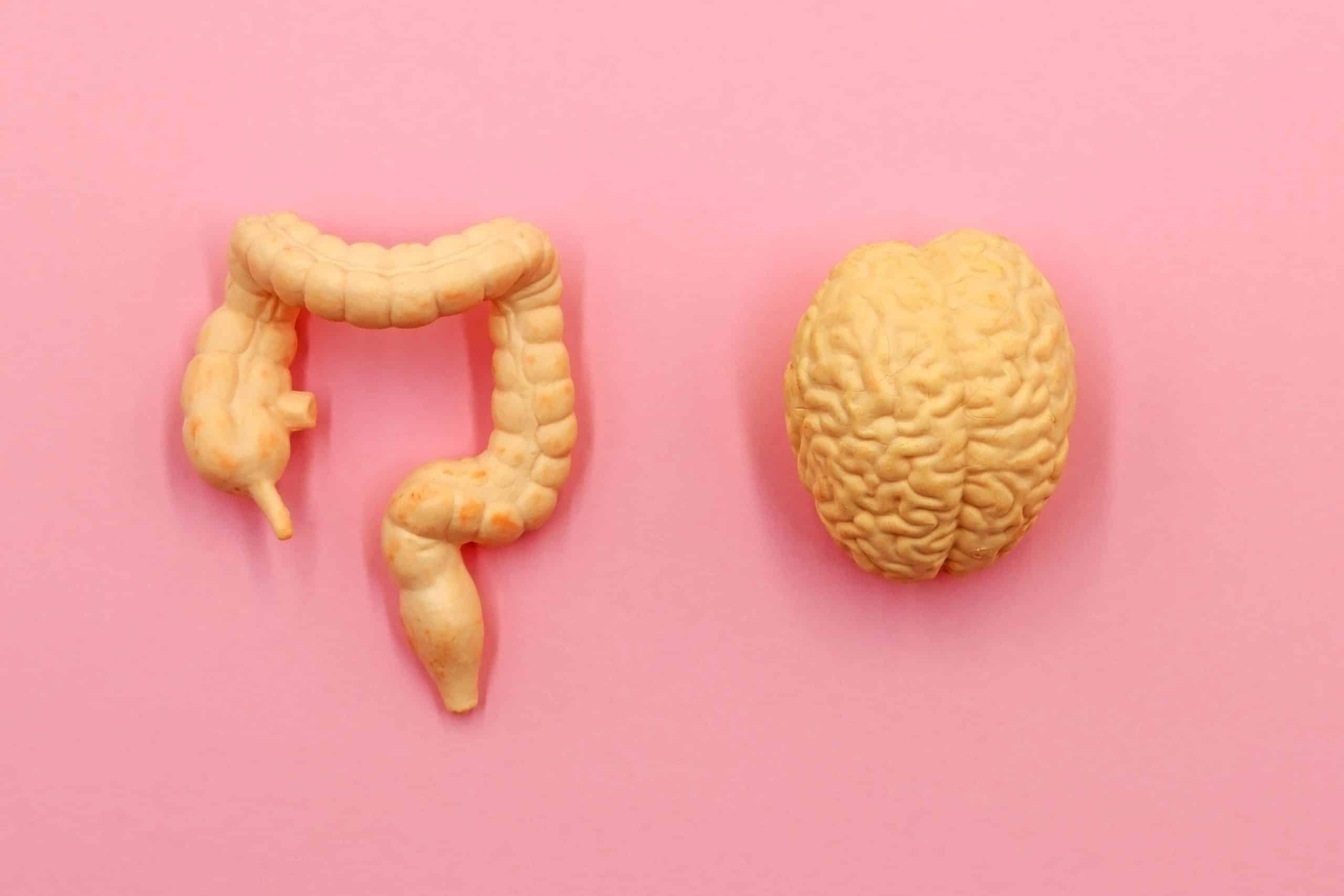 Stress and Your Gut
Stress and Your Gut
If you’re feeling stressed, it could be your microbiome getting out of balance. Your digestive health starts with your mouth, according to Dr. Wade, and stress increases acidity in your gut, disrupting the pH, which can lead to leaky gut syndrome. Health and beauty expert Laura Lewis-Edwards likens your microbiome to a parking lot at a tailgate party. Healthy, beneficial microbes have their designated parking spots, helping you digest food, produce vitamins, and regulate neurotransmitters. She goes on to explain that when you’re stressed, however, it’s like a rogue motorcycle gang, not only taking up parking spots but perforating the intestinal lining, allowing harmful bacteria and toxins to leak into the bloodstream.
This can cause widespread inflammation, contributing to autoimmune diseases, brain fog, joint pain, and even mental health conditions like anxiety and depression. Your first instinct might be to take antibiotics, but while those can kill the bacteria causing your infection, it can also kill the good flora in your gut. It’s a vicious cycle: the more stressed you are, the more likely your microbiome will suffer, which, in turn, can make your mood even worse.
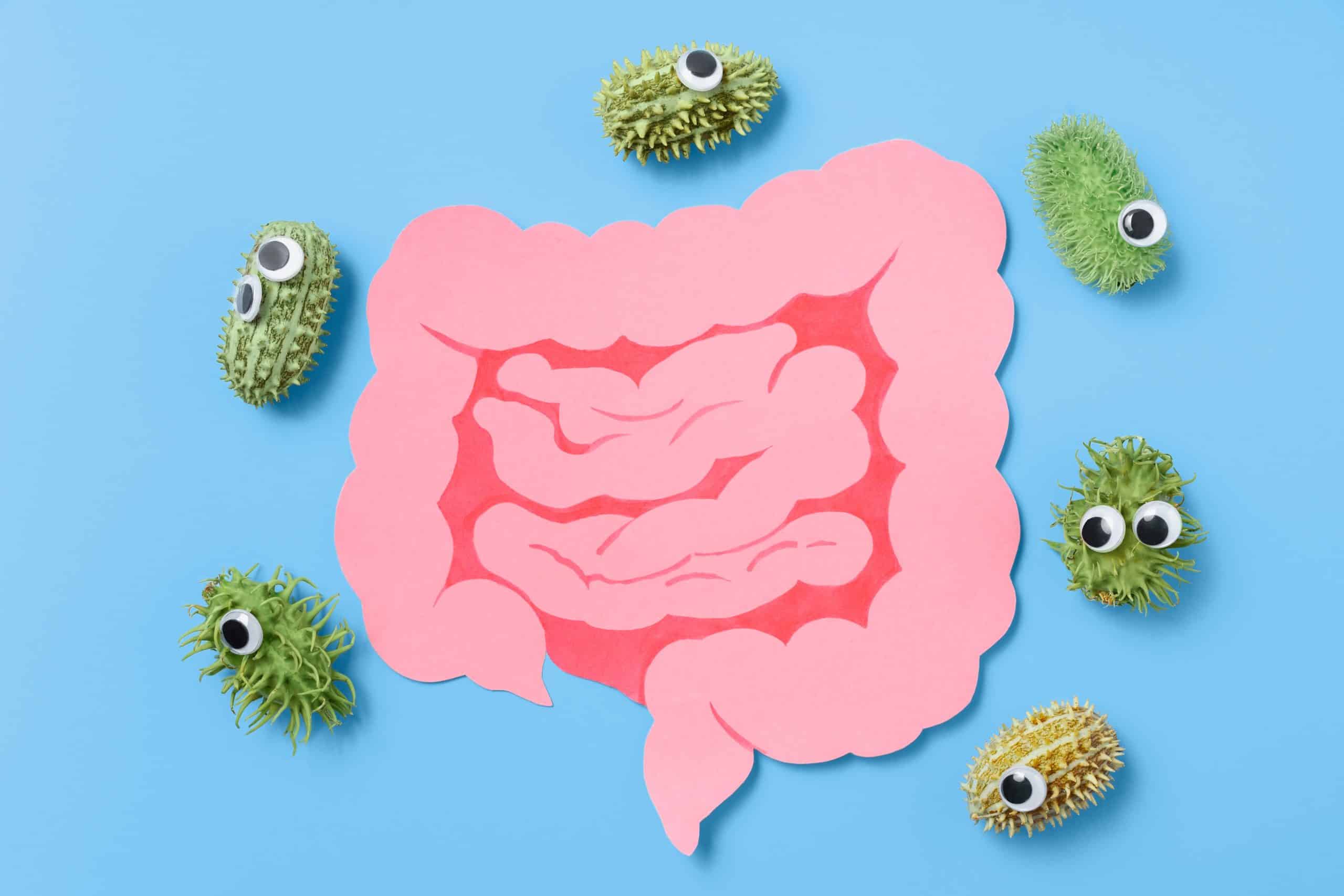 Family Systems and Microbiomes
Family Systems and Microbiomes
Laura Lewis-Edwards shares an intriguing insight based on her work in nutrition and family systems. She points out that the microbiome is, in many ways, passed down from generation to generation. When a child is born naturally through the vaginal canal, “a lot of good bacteria from the mom is postulated on the newborn child, helping get things started,” she says. This “seedling” microbiome helps establish the foundation for a healthy gut and immune system. However, the microbes a family shares—through kissing, sharing food, or even close contact—may influence emotional and mental health patterns within the family system.
For instance, if a mother and child share patterns of anxiety or nervousness, it could be because of their shared imbalances in their microbiomes. It’s all correlated, she reminds us. If they lack certain beneficial bacteria, like Lactobacillus rhamnosus, which can be “beneficial for anxiety and stress,” they may not be able to produce the neurotransmitters needed to stay calm. The link between gut health and emotional health is part of the gut-brain connection, says Dr. Jill Wade, DDS, MAGD of Stonebriar Smile Design. She reiterates that all of our systems work together, and each system influences the other.
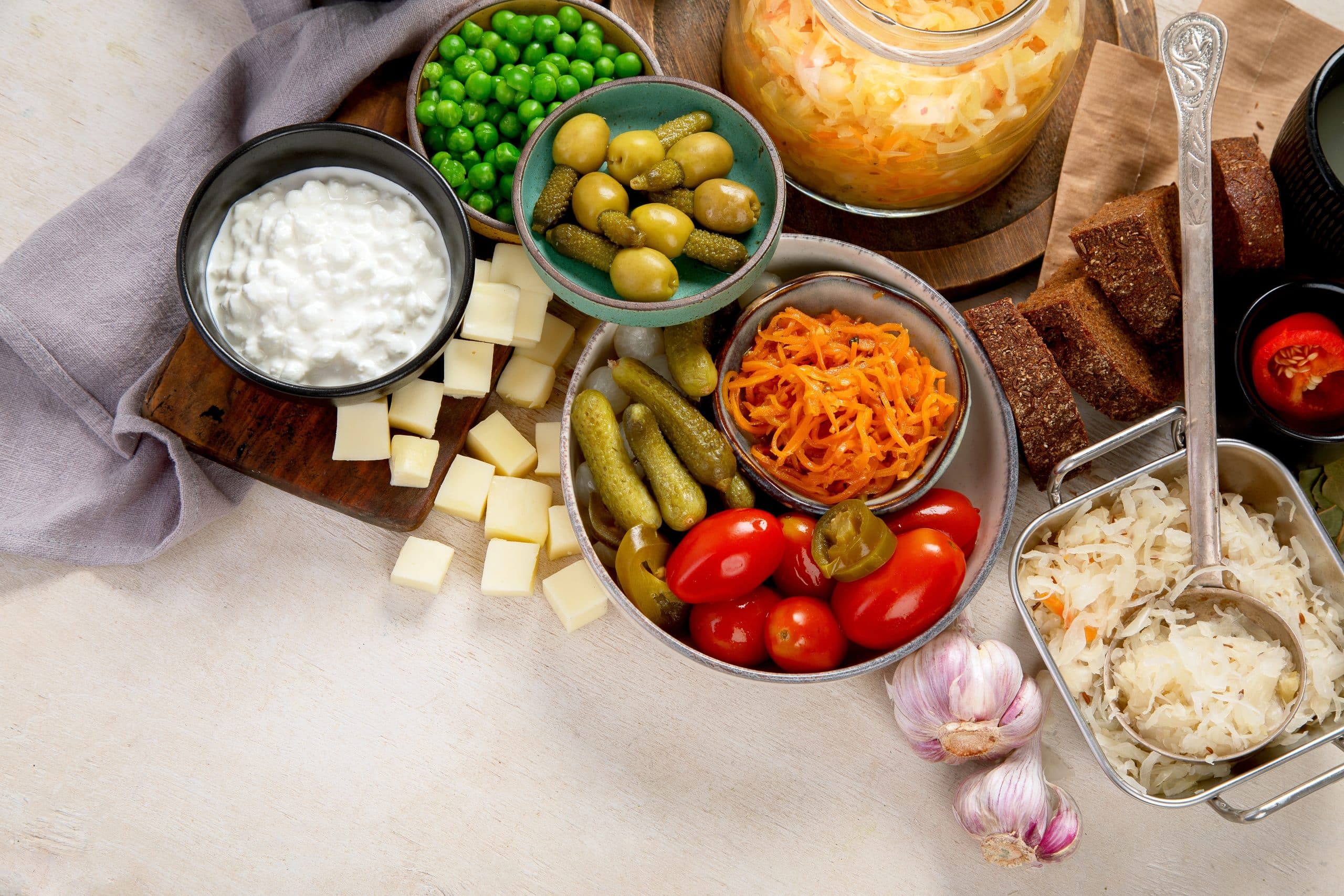 Maintaining a Healthy Microbiome
Maintaining a Healthy Microbiome
So, how can we keep our microbiomes healthy? The key is balance, and it all starts with what you’re putting into your mouth. You can start with prebiotics and probiotics (the “good bugs”), suggests Laura Lewis-Edwards, which helps create an environment for good gut flora to thrive in your intestines. Prebiotics are foods that feed on good bacteria, while probiotics are foods that introduce new and beneficial bacteria to the gut. Some ways you can enhance your microbiome:
- Diet: Eat a diet rich in probiotics, such as organic, unsweetened applesauce, sauerkraut, kimchi, and yogurt. You can also eat soluble fiber-rich prebiotic foods like legumes.
- Probiotic Supplements: While getting probiotics from food is ideal, you could also supplement your gut flora by taking prebiotics or probiotics in pill form; just make sure to find a high-quality product that’s right for you.
- Limit Alcohol and Sugar: Too much alcohol and sugar can disrupt your microbiome and cause you to have gut issues. Monitor your intake, and keep it to a minimum.
Dr. Jill Wade, who also has a dental practice in the Dallas/Fort Worth Metroplex, warns that “if you eat too much of [a particular food], it can actually start to do the opposite of what you think it is…and can create sensitivities.” She also attests that balancing your microbiome without medical input is “a guessing game,” and that diagnostic tests can better help you create a customized diet and plan that is best for your body. This can also aid in pinpointing the root cause of any gut issues you may have.
While we may know more about the microbiome than in years past, there’s still much to learn about the gut and its effects on the whole-body system. In the meantime, whether through nutrition, stress management, or personalized interventions, explore these tips on balancing your microbiome and discover how they may change the way you feel.
Click here to watch this episode of the Beyond Face Value Show on YouTube.
Visit us on YouTube to hear more about Stonebriar Smile Design and wellness dentistry, and be sure to comment, like, and subscribe.

